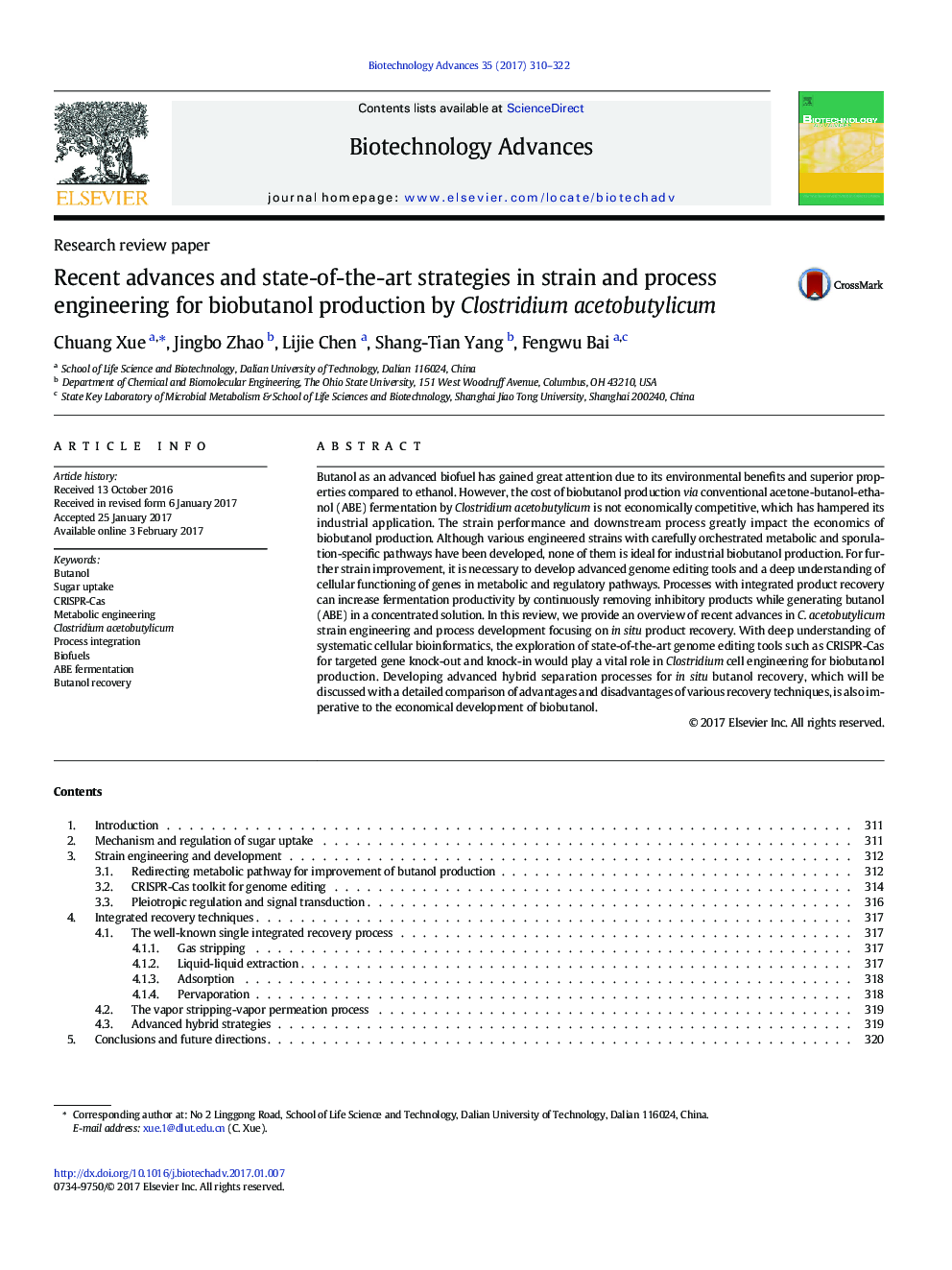| Article ID | Journal | Published Year | Pages | File Type |
|---|---|---|---|---|
| 4752556 | Biotechnology Advances | 2017 | 13 Pages |
Butanol as an advanced biofuel has gained great attention due to its environmental benefits and superior properties compared to ethanol. However, the cost of biobutanol production via conventional acetone-butanol-ethanol (ABE) fermentation by Clostridium acetobutylicum is not economically competitive, which has hampered its industrial application. The strain performance and downstream process greatly impact the economics of biobutanol production. Although various engineered strains with carefully orchestrated metabolic and sporulation-specific pathways have been developed, none of them is ideal for industrial biobutanol production. For further strain improvement, it is necessary to develop advanced genome editing tools and a deep understanding of cellular functioning of genes in metabolic and regulatory pathways. Processes with integrated product recovery can increase fermentation productivity by continuously removing inhibitory products while generating butanol (ABE) in a concentrated solution. In this review, we provide an overview of recent advances in C. acetobutylicum strain engineering and process development focusing on in situ product recovery. With deep understanding of systematic cellular bioinformatics, the exploration of state-of-the-art genome editing tools such as CRISPR-Cas for targeted gene knock-out and knock-in would play a vital role in Clostridium cell engineering for biobutanol production. Developing advanced hybrid separation processes for in situ butanol recovery, which will be discussed with a detailed comparison of advantages and disadvantages of various recovery techniques, is also imperative to the economical development of biobutanol.
